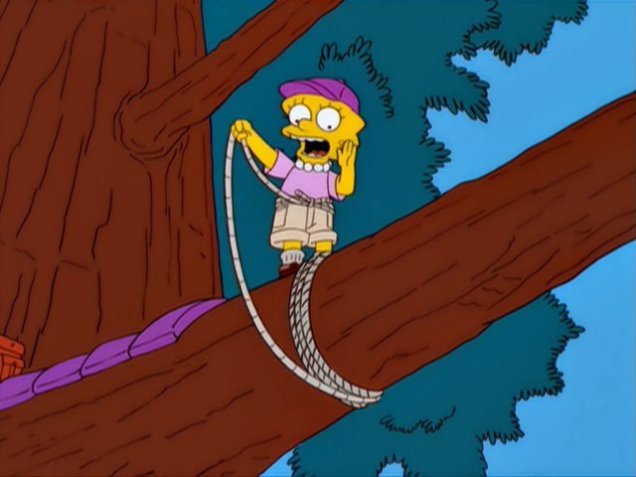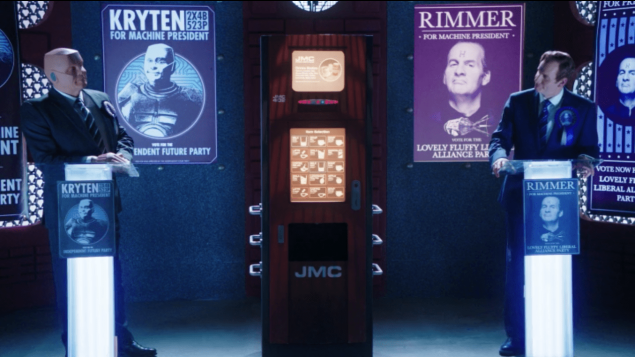
“Dancing away my hunger pains
Moving my feet, so my stomach won’t hurt
I’m kinda like Jesus
But not in a sacrilegious way”
– Homer’s “Don’t Move the Team” chant/song
Airdate: March 4th, 2001
Written By: John Swartzwelder
Plot: After an experience with customer service at Blockoland, Homer decides to take up being a good samaritan, in particular, an advocate for downtrodden consumers. The ultimate challenge comes when he accidentally discovers that the Springfield Isotopes are preparing to move to Albuquerque. With the team trying to cover up their relocation, Homer declares himself on a hunger strike.
Review:
It’s 1984 – the year that brought us the debut of the Apple Macintosh, the breakup of Ma Bell, the UK Miners Strike, and the launch of the TED Conference.
The Baltimore Colts NFL Team had been looking to replace their longtime stadium with a more modern venue. However, team owner Robert Irsay was gearing for public financing of the hypothetical new stadium, something which the local and State governments in Baltimore and Maryland were very reluctant to grant. Concurrently, the city of Indianapolis had been gearing up for reinvention, up to and including the construction of a new domed stadium. By the start of March, Irsay had his eyes on Indiana.
In an attempt to block the move, on the 27th, the Maryland Senate granted permission for the City of Baltimore to declare eminent domain on the franchise. Two days later, the Maryland House of Delegates also passed the bill clearing the way for the team to be seized. Unfortunately, the bill was redundant – the night prior, Irsay arranged for moving vans to load up everything the team owned and haul ass to Indianapolis, complete with Hoosier police escort once they crossed the state line.
Baltimore was understandably livid – they lost their NFL team, they lost the name that had been connected to the city, they lost the franchise records, and all in an act of midnight treachery. Colts legend Johnny Unitas disowned the franchise, to say nothing of the legion of Marylanders who were livid at such a move. So infamous was this maneuver that when Art Modell decided to move the Cleveland Browns to Baltimore in 1996, he was eventually forced to dump the Browns history in Ohio and effectively start a “new” franchise in Baltimore, the modern-day Ravens.
They weren’t the first nor the last sports teams to leg it from their city, and certainly not the last under questionable circumstances. Relocation or contraction of a sports team is the ultimate act of betrayal if you are a sports fan, especially if said team is a major social point – which it often is. Even in larger cities, it can be a bit of a blow to the psyche. Small towns? That can be devastating – as was the case when Bury FC were thrown out of England’s Football League (different case, but still a similar level of upset.)
Hence the foundations of the central conflict in today’s Simpsons episode, “Hungry Hungry Homer” – a man standing up against corporate sports. Continue reading











You must be logged in to post a comment.